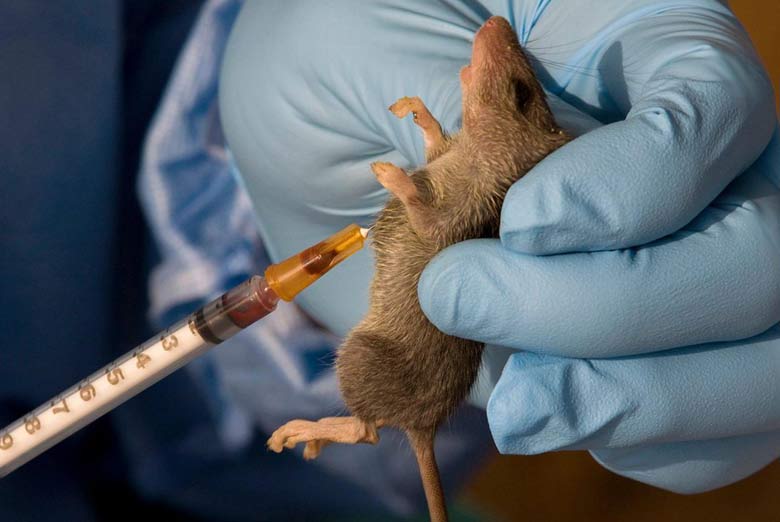

News
Umar Farouq flags off Training of 37 Master Trainers For N-Skills Programme.
A training workshop for 37 Master Trainers for the N-Skills Programme, an arm under Federal Government’s National Social Investment Programme N-Power, has commenced in Abuja.
Declaring the training session open, the Minister of Humanitarian Affairs, Disaster Management and Social Development Sadiya Umar Farouq said that the N-Skills programme targets marginalized and disadvantaged population, including those with primary or no-formal education.
The Minister who was represented by the Permanent Secretary of the Ministry Mr Bashir Nura Alkali stated that the 37 Master Trainers will later coordinate the training of 6,475 youths selected from the 36 States and FCT.
“The Ministry worked with experienced training service providers to carefully select those to be trained today as Master Trainers. We expect these Master Trainers to effectively play their role of coordinating the training of the target beneficiaries of the N-Skills programme in their respective States and FCT.
“The success of the programme relies to a large extent on your capacity and commitment to ensure effective delivery of the training, especially in the three important areas of Life Skills, Foundational Skills and Entrepreneurial Skills.
“I urge you to, therefore, participate actively to learn and enhance your capacity. I am confident that with the calibre of resource persons and facilitators assembled here, this goal will be achieved”.
Earlier, the National Coordinator, NSIP Dr Umar Bindir noted that N-Power targets delivery capacity and capability alongside skills. He added that this is one of the measures being taken to ensure that no one is left behind under the President Muhammadu Buhari administration of lifting 100 million Nigerians out of poverty by 2032.
“The training targets the unlearned so that every category of Nigerians will have something to fall back on”.
In his remarks, the Team Lead, N-Power Mr Nsikak Okon stated that 175 N-Skills beneficiaries were selected through random sampling from each of the 36 states and the FCT.
“We target market places and other informal places as well as the streets.
“The essence of training the Master Trainers is to ensure that they get it right from the foundation. They have to know the entrepreneurial skills as well as life skills so that when they go back to the grassroots, they will be able to impart what they have been taught”.
Upon completion of the training, the target beneficiaries will be provided with Start-up Kits.
News
Nigeria Faces Rising Lassa Fever Fatalities with 166 Deaths Across 21 States – NCDC
The Nigeria Centre for Disease Control and Prevention (NCDC) has confirmed 166 deaths from Lassa fever between January and September 2025. With a fatality rate of 18.5 percent, higher than last year’s figure, the agency warns that late presentation, poor health-seeking behaviour, and weak community awareness continue to fuel the spread of the deadly disease.

Abuja, October 2, 2025 – The Nigeria Centre for Disease Control and Prevention (NCDC) has announced that 166 Nigerians lost their lives to Lassa fever between January and September 2025, with the fatality rate now higher than what was recorded in 2024.
The public health agency disclosed the figures in its latest situation report published on its official website, covering Epidemiological Week 37, from September 8 to 14. It explained that the current situation reflects a worrying trend despite ongoing national response efforts.
According to the NCDC, “a total of 895 confirmed cases have been recorded across 21 states and 106 local government areas in 2025,” representing a widespread presence of the virus in multiple parts of the country.
The centre said the case fatality rate (CFR) has climbed to 18.5 percent, surpassing the 16.9 percent reported during the same period in 2024. It emphasized that although suspected and confirmed cases are lower this year, more patients are dying due to “late presentation and poor health-seeking behaviour, often linked to the high cost of treatment.”
Highlighting the geographical burden of the outbreak, the NCDC pointed out that Ondo, Bauchi, Edo, Taraba, and Ebonyi states continue to account for 90 percent of all confirmed cases, with Ondo State alone responsible for a third of total infections nationwide.
In its latest update, the agency confirmed that no new healthcare worker was infected during the reporting week. However, it warned that poor environmental sanitation, weak community awareness, and delayed treatment remain major drivers of the outbreak’s persistence and severity.
The centre explained that Lassa fever is “an acute viral haemorrhagic illness caused by the Lassa virus,” transmitted to humans primarily through contact with food or household items contaminated by rodents, particularly the multi-mammate rat. It also noted that human-to-human transmission is possible, especially in hospitals without adequate infection prevention measures.
NCDC officials outlined that symptoms often include fever, headache, sore throat, chest pain, vomiting, and diarrhoea, while severe cases may present with unexplained bleeding. The agency added that the disease is endemic in parts of West Africa, with Nigeria bearing the heaviest burden in the region.
To strengthen control measures, the agency revealed it had deployed 10 rapid response teams to high-burden states, rolled out new infection prevention and control (IPC) training modules, and supported clinical management fellowship programmes in collaboration with both local and international partners.
The NCDC further urged states to intensify community engagement and preventive campaigns, while reminding healthcare workers to “maintain a high index of suspicion and initiate early treatment once symptoms are identified,” stressing that timely response remains the best strategy to reduce Lassa fever deaths in Nigeria. GMTNewsng
News
South Korea’s Rice Output to Decline in 2025 Amid Shrinking Farmland
South Korea’s rice production is projected to fall by 0.3 percent in 2025, with the Ministry of Data and Statistics citing shrinking farmland as the main factor. The statistical office warns that the steady decline in rice paddies, now at their lowest since 1965, could pose long-term food security challenges despite a short-term surplus.

South Korea’s rice production is projected to experience a slight decline in 2025, continuing a downward trend for the fourth consecutive year. “Rice output is expected to fall by 0.3 percent this year compared to 2024,” the Ministry of Data and Statistics said in a report released on Thursday.
According to the ministry, South Korea is set to produce an estimated 3,574,000 tons of rice in 2025. “This compares with 3,585,000 tons harvested the previous year,” the ministry explained, noting that rice remains a staple food for millions of South Koreans and a key part of national food security.
The statistical office attributed the decline to a drop in farmland. “The size of rice paddies across the country declined by 2.9 percent in 2025 to 678,000 hectares,” it said. “This marks the lowest level since relevant data began to be compiled in 1965.”
Officials further highlighted structural challenges behind the reduction. “Urban expansion, climate-related pressures, and shifting land-use priorities continue to impact rice cultivation,” the report stated. “Unless addressed, these factors could place greater strain on domestic food supply in the future.”
The office also noted that consumption patterns are shifting. “Rice consumption in South Korea has been on the decline for decades due to changing eating habits,” it said. “A growing preference for alternatives such as bread and noodles has lessened dependence on rice as the primary staple.”
Despite the decline in output, the Ministry assured that supply will remain stable for now. “This year’s rice harvest is expected to exceed demand by about 165,000 tons,” it reported, pointing to household consumption, food processing, and government rice reserves.
Still, the ministry cautioned that the long-term trend remains concerning. “The continued fall in rice paddies and production poses a serious challenge,” it warned. “Policymakers must invest in sustainable farming, support young farmers, and adopt agricultural technology to safeguard the country’s staple grain for the future.” GMTNewsng
News
Igboeze South Stakeholders Pass Vote of Confidence on Mbah, Ukwueze

Stakeholders in the Igboeze South local government area of Enugu State have passed a vote of confidence on Gov. Peter Mbah and the Council Chairman, Mr Ferdinand Ukwueze.
This is contained in a communique signed by HRM Okechukwu Agbaji, the Agbaji of Unadu Ancient Kingdom, and others at the end of their meeting on Sunday at Ibagwa-Aka.
The stakeholders noted that their decision followed a thorough assessment of the governor’s achievements within his two years in office.
The leaders listed the achievements to include the construction of 260 smart schools and 260 type 2 hospitals across 260 political wards and the rehabilitation of primary healthcare centres.
Others are the construction of Opi–Ekwegbe–Ugwogo Nike–Abakpa dual carriageway, the Nsukka bus terminal, and the rollout of Compressed Natural Gas-powered buses for safer and more affordable travel.
They also acknowledged the improved air connectivity through the revitalised Enugu airport.
“In this spirit, traditional rulers and presidents general of town unions in Igboeze South, led by Agbaji, have openly declared their support for Gov. Peter Mbah.”
“With key projects ongoing across Igboeze South Council Area two years into the administration of Mbah, we have unanimously passed a vote of confidence on the governor.
“We commended his innovative and transformative strides across Enugu State,” it said.
The leaders further expressed their appreciation for the efforts of the Local Government Chairman, Ukwuweze, for aligning with the governor’s vision.
They highlighted his achievements to include reconstruction of the council secretariat, construction of rural roads, improved security, and youth empowerment among others.
“The collective voice of the traditional institution in Igboeze South has sent a strong message of solidarity and support for the current administration.” the communique added.
They equally offered prayers for sustained progress and urged continued support for Mbah’s socio-economic agenda.
-

 News4 years ago
News4 years agoEnugu Community: Bloodbath imminent as traditional ruler plans forceful take over of ancestral land
-

 Features4 years ago
Features4 years ago65 Hearty Cheers To Prof. Bart Nnaji, Aka Ji Oku, Nigeria’s Former Minister Of Power
-

 News4 years ago
News4 years ago2023: Support one of our sons to be governor of Enugu State -Nkanu East leaders plead with other areas
-

 Politics4 years ago
Politics4 years ago2023: Enugu State Governorship slot should go to Nkanu East ~Jim Nwobodo
-

 Opinion4 years ago
Opinion4 years agoBIAFRA, KANU AND NIGERIA
-

 News4 years ago
News4 years agoUgwuanyi an epitome of peace in Enugu State ~Owo Community
-

 News4 years ago
News4 years agoHow Interpol intercepted IPoB leader in Europe
-

 Politics4 years ago
Politics4 years agoEnugu: Nkanu East Leaders’ Forum Kicks Off Consultations For 2023 Governorship Slot








